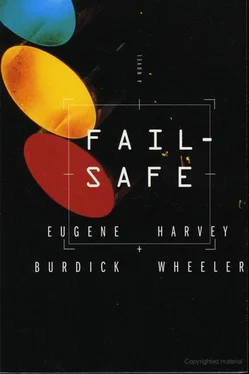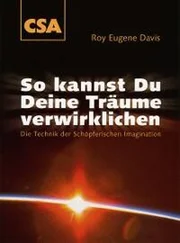Black felt a reluctant admiration for Groteschete. He disagreed with most of What Groteschele said, but when the chips were down and the crisis came, the man had stated his position without reservations.
“Just why would they surrender if we hit them?” Swenson asked.
“They are human calculating machines, Marxist fanatics, not motivated by rage or hate,” Groteschele said evenly. “If they are hit first, even with H-bombs, they know that if they retaliate they can destroy us or a substantial part of our people and resources. But they also know that we would have a second strike capacity which would devastate them. The important thing, for the Marxist, is to keep at least part of the Soviet Union intact. They would not be particularly worried about the survival of a capitalist country. In fact, many of them believe that capitalism must play itself out to its inevitable historical defeat before Communism can really succeed. To put it crudely: they want to be around for a while, and if the price they have to pay is that some free countries are also around they will pay it. They will not allow the world to be destroyed. They aim to dominate it eventually and they want it reasonably intact. So they would surrender.”
Swenson looked back at the Big Board. The fighter blips were very dose to Group 6. He swung around abruptly.
“In short you believe they are utterly in the grip of an ideology,” Swenson said. “Their logic and their fanaticism will make them act in a perfectly determined manner. Is that correct?”
Groteschele hesitated. He could not tell how Swenson evaluated this argument. He took a deep breath.
“Yes, sir, that is what I think,” Groteschele said slowly.
Again Black felt a flash of admiration. Groteschele was putting a whole career, a reputation, a school of thought, nakedly on the line. There was a good chance that before the day was out it would face judgment.
Swenson looked around the table, his silence inviting comments.
Groteschele could not afford the silence.
“What I am-arguing, Mr. Secretary, is that although my interpretation seems unusual and novel it is Simplicity itself,” Groteschele. said, “We should do nothing. If -I am correct the Russians will surrender, and if our leaders are sufficiently resourceful the threat of Communism is over forever.”
“Do nothing,” Swenson said quietly.
Groteschele was tough. Swenson was an amateur historian and a student of modern leadership. He had learned that all of the powerful leaders had known when to wait. The capacity to do nothing at the right time was part of great statesmanship. Swenson did not for a moment accept Groteschele’s analysis or his evidence. But his condusion might be right.
“Mr. Secretary, I think all of that is a lot of crap,” General Bogan’s voice cut in harshly from Omaha. “Look, I am under the gun more than any of you. I have to take all of this stuff from the computers and translate it into action. Don’t kid yourself. There are going to be three or four Russian generals at crucial spots who will react exactly the way I do: the best defense is a good offense. They will attack without giving a damn about what Marx or anyone else said.”
“Any other comments?” Swenson asked.
Groteschele had seated himself, but he was bent forward in his chair, tense with excitement. By his own act of will, he was almost at the point of committing the total energies of one hundred and ninety million people in an enormous military decision.
Swenson glanced at Black.
“Everything in Groteschele’s argument depends upon the extent to which Russian leaders are dominated by Marxist ideology,” Black said. “He believes that domination is complete. I think he is wrong. The CIA -did -a long study on this and it came to the conclusion that Soviet leaders made their decisions as
Russians and later justified them as Marxists. Forget they are Communists and judge their acts objectively and they behave much like leaders in any other country.”
On the Big Board the fighter blips were seemingly only inches away from the Vindicators. Everyone listened to Black, but they were watching the Big Board. The lead blip suddenly ejected two tiny phosphorescent dots that sped out ahead of it. Then the blip began a long lazy downward curving arc. Black knew that the plane had flamed out because of a lack of fuel, had fired its missiles, and was now falling toward the icy waters. He sensed the pilot’s first sensation of terror, the awful feeling of a dead plane under one’s hands. The suspense of waiting for the capsule to eject, the slow swinging parachute’s descent into the icy arctic waters, and the last few numbing moments before death…
Swenson’s voice cut in with authority.
“The lead fighter has gone in,” he said. “We can assume that none of the others will be successful. Now where do we stand?”
Groteschele made an oblique approach to pin down his position.
“Mr. Secretary, let me remind you about the Doomsday tapes. Both the Soviet Union and we have the ability to launch a first strike, to have most of the missile sites survive an enemy strike, and to launch a second strike,” Groteschele said. “Assume that every person in America were killed by Russia’s second strike. The Russians know that the Doomsday tapes would then go into operation. This means that weeks or even months after all of us were dead the silos scattered in hard and locked-up sites around the United States would go into action and destroy what is left of the Soviet Union. What is more important is that the Russians know we have those tapes. And that we would use them. Group 6, however its accident happened, has provided a God-given opportunity. One of our groups is well launched toward. Russia with a reasonable chance of success. I am convinced that the moment the Russians realize that, they will surrender. They know they cannot escape our second strike or ultimately our Doomsday tapes. Group 6 has given us a fantastic historic advantage. By accident they have forced us into making the first move, the move we would never have made deliberately. By making that first move, by cracking the gigantic tension, we will get a premature surrender from our enemy. We should advise the President that no efforts be made to recall them. At the same time we should tell the Soviet leaders that they have been launched by accident.”
The second and third fighters launched their futile missiles and went into the long spiral which ended in icy death.
Swenson waited a moment, as if allowing the subtleties of Groteschele’s argument to sink in.
“We must still tell the President how this happened,” Swenson said. “We have heard Colonel Casdo’s theory that it might be a Russian subterfuge or trick. Any other ideas?”
“I do not think that Colonel Cascio is correct, but one part of his argument is helpful,” Black said. “If the Russians did think that Group 6 was part of a planned attack, they would at once try to jam its radio signals so that we could not give it guidance or instructions.
“But why would they not leave the channels open so that we could recall the group if it was a mistake?”
Swenson asked.
“Because they are as suspicious as we are,” Black said. “Our standard operating procedure is to try at once to isolate any Russian bomber group which launches what looks like an offensive against us or our allies. Here we are both victims of our suspicions.
Though we both know that there is a possibility of bombers ‘getting loose’ by accident, we assume the other side would do it deliberately. Hence we try to frustrate their efforts to contact their bombers or to control the flight of their ICBMs.”
There was a murmur of voices from Omaha. Swenson cocked his bead to one side. Then General Bogan’s voice came out loud and dear. “Knapp probably knows as much about the electronic gear as anyone else,” General Bogan said. “He is a little reluctant to talk but I have asked him to. Is that agreeable, Mr. Secretary?”
Читать дальше











